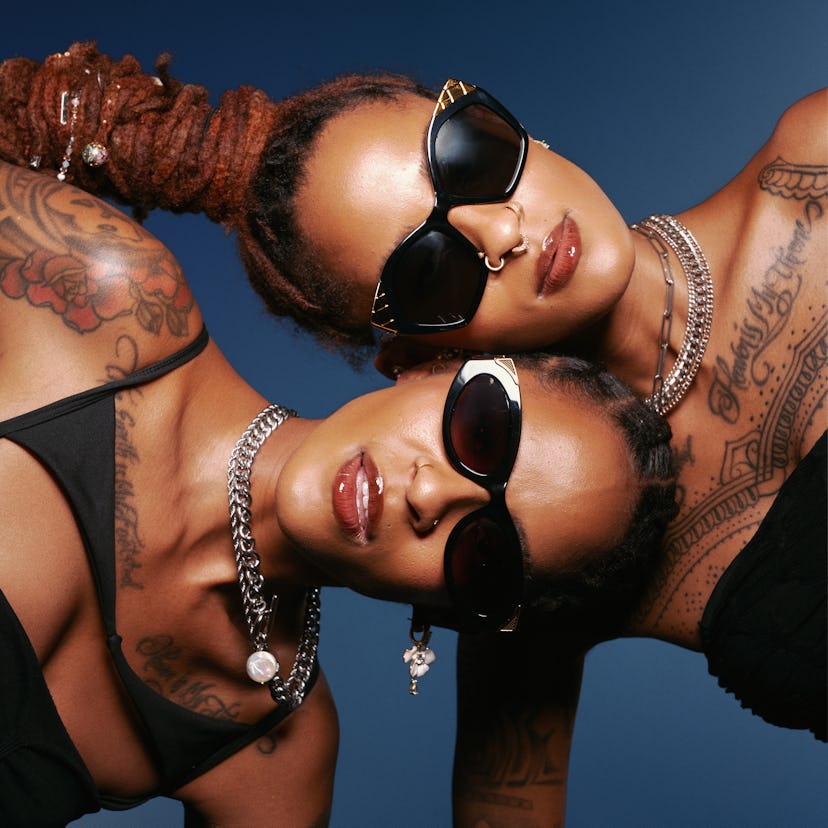From The Magazine
The Club Is Coco & Breezy's Classroom
Where you might learn something about history, house music, or the DJ twins themselves.

Introducing... Spinning Out, a recurring series in which NYLON spotlights the most exciting DJs working the circuit right now. Get to know promising upstarts and subgenre superstars — before they hit the big leagues.
Coco & Breezy — identical twins originally from Minnesota — are known for spinning soulful, spiritual sets, and for their eponymous brand of sunglasses, which have been worn by Prince, Nicki Minaj, and Lady Gaga. (They also played NYLON’s most recent Fashion Week party.) Ahead of their residency at Ushuaïa Ibiza, which begins later this month, NYLON sits down with the DJ duo to talk about the heyday of 1 Oak, why house music is a performance, and sampling a Martin Luther King Jr. speech.
What was an influential club song for you?
Breezy: “Percolator” by Cajmere was super pivotal. We lived in the suburbs but would go to different house parties where they would play house and Chicago juke. “Percolator” was the song where you saw everybody from all walks of life dancing.
How was the nightlife in Minnesota?
B: It was extremely racist. Sundays were the nights where there were more Black and brown people outside, and the police would use pepper spray when we were running to our cars. Our eyes would be burning on the way home.
Coco: We moved to New York City when we were 19, and that’s when we got to experience real nightlife. We could dress how we wanted, and everyone thought we were somebody. We were at 1 Oak at 18, 19 years old.
How different is designing sunglasses from designing a DJ set?
C: When we’re designing eyewear, we’re thinking about how someone can look really fly and beautiful, but be comfortable. When we’re thinking about a DJ set, we also think about how everyone is going to feel when they hear our sets.
As twins, what’s your dynamic like onstage?
B: People always tell us we’re in sync. A lot of the time, without realizing, we are moving our feet and stepping back at the same time.
C: We always say we’re having our own party and everyone else is invited.
People really gravitate toward DJs who are moving. I don’t think they just want someone to stand up there and look too cool.
B: I see comments like, “Why are they dancing? They’re supposed to be DJing.” But you know what? I think that’s the loss of history. House music was created by Black and brown people, and people danced to house music. It’s a performance.
C: When you think about a rock band or a pop artist, they’re singing, they’re playing their instrument, they’re dancing, they’re changing their facial expressions. I look at myself like that. My CDJs and mixer, that’s my instrument, and I am a performer.
What’s your DJ signature?
B: We love to find very powerful voices and a cappellas that we put behind a really amazing beat so while people are dancing, they are also receiving a message.
C: One of my favorites I’ve used is a Martin Luther King Jr. speech. It was cool because I played it during a crazy Latin conga bongo track.
B: That right there is showing our Puerto Rican side and that we’re African Americans in America. We’re kind of sharing our story through our music.